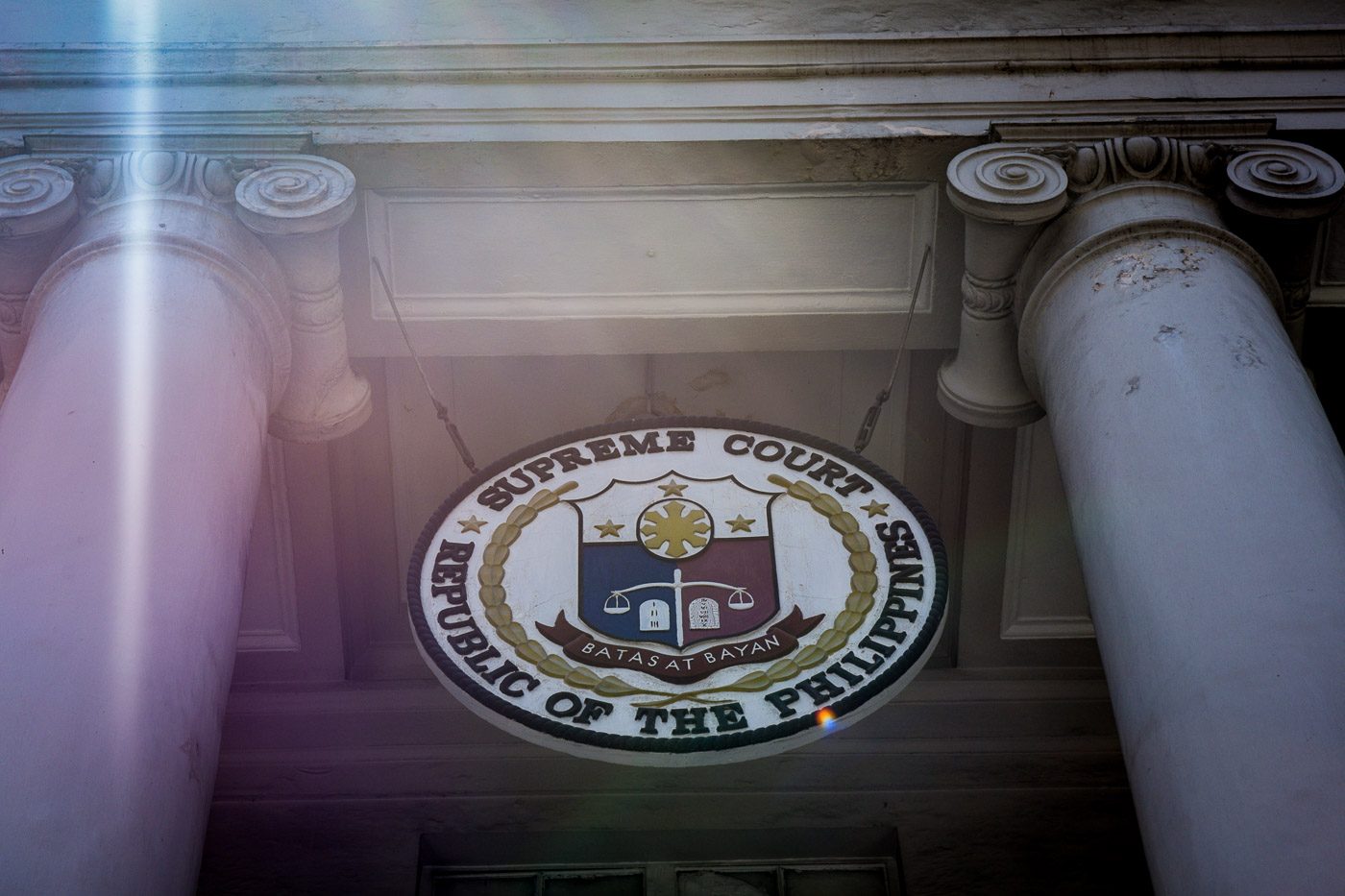SUMMARY
This is AI generated summarization, which may have errors. For context, always refer to the full article.

MANILA, Philippines – The family of an alleged communist rebel should not be subjected to surveillance, and the police must stop badgering the spouse and children, the Supreme Court ruled.
The High Court made this decision in granting the petition for Writ of Amparo filed by Vivian Sanchez, the estranged wife of Eldie Labinghisa, who was among those killed in a police operation in Antique in in August 2018, for being an alleged member of the New Peoples’ Army (NPA).
By a vote of 8-5, and in a ponencia penned by Associate Justice Marvic Leonen, the High Court did not only issue the writ, but also the privileges of the writ, and gave a permanent protection order to Sanchez and her family, who were surveilled and threatened with prosecution if they would not cooperate with police.
“A permanent protection order is issued prohibiting members of the PNP from monitoring or surveilling petitioner Vivian A. Sanchez and her children,” the SC said in its decision promulgated October 15, 2019, but released to media only on Thursday, February 27.
“While pursuing rebels is legitimate law enforcement objective, zeal of our police must be bound by fundamental rights of persons, especially loved ones of persons of interest. After all the values we have in the Constitution are what differentiate us from lawless elements,” the High Court added. (READ: Lives in danger as red-tagging campaign intensifies)
In his 19-page ponencia, Leonen also invoked the right to privacy and marital privilege in saying that Sanchez and her children should not be forced to testify or divulge information that may be used against Labinghisa.
“Wives and children are not ordinary witnesses, as evidenced by the privileges they enjoy against State incursion into their relationships. Hence, respondents’ surveillance of petitioner and her children as witting or unwitting witnesses against her husband or his activities is correctible by a writ of amparo,” the High Court said.
A writ of amparo seeks a protection order from the court. It is sometimes similar to a restraining order in other countries.
This Supreme Court ruling is notable because in recent Amparo cases filed by activists and human rights lawyers, the High Court only issued the writ, but not the privileges.
The writ only compelled state authorities to explain themselves in a summary hearing held at the Court of Appeals (CA). At the CA, the privileges were denied and no protective orders were issued.
The string of such losses at the CA highlight the weakness of extraordinary writs such as Amparo at the height of the Duterte administration’s crackdown on communists, activists and dissent.
The Sanchez case
Upon learning that her estranged husband was killed, Sanchez went to the funeral home where Labinghisa’s remains were brought to, as she wanted to confirm his death. She did not get to see the corpse because cops took her photo and started asking her questions.
Sanchez later learned from a friend that her photo was being circulated among cops. She and her children also reported seeing patrol cars drive by their home.
Sanchez was also threatened with prosecution.
“Sanchez went back to the funeral home where she was confronted by 3 police officers who threatened to apprehend and charge her with obstruction of justice if she refused to answer their questions,” the Supreme Court quoted the petitioner.
Sanchez was initially given a temporary protection order by the San Jose, Antique Regional Trial Court, but upon the explanation of the policemen involved, the order was recalled and the case was dismissed.
At the High Court, a majority of the justices said Sanchez was able to prove that her fears were not just out of paranoia but anchored on real threats.
“The surreptitious surveillance of petitioner and her family is an abuse of the PNP’s authority. If respondents wanted to interview the petitioner and her children, they should have done so formally: informing them of their rights, holding the interview in an environment free of intimidation, and making sure that they had access to and were assisted by legal counsel or legal assistance groups,” the Supreme Court said.
Leonen had concurrences from retired chief justice Lucas Bersamin, Chief Justice Diosdado Peralta, retired Senior Associate Justice Antonio Carpio, Senior Associate Justice Estela Perlas-Bernabe, and Associate Justices Benjamin Caguioa, Amy Lazaro-Javier, and Henri Jean Paul Inting.
Associate Justice Ramon Paul Hernando dissented, saying Sanchez was not able to prove imminent threat. Associate Justices Andres Reyes Jr, Alexander Gesmundo, Rosmari Carandang, and Rodil Zalameda adopted the dissent. – Rappler.com
Add a comment
How does this make you feel?
There are no comments yet. Add your comment to start the conversation.